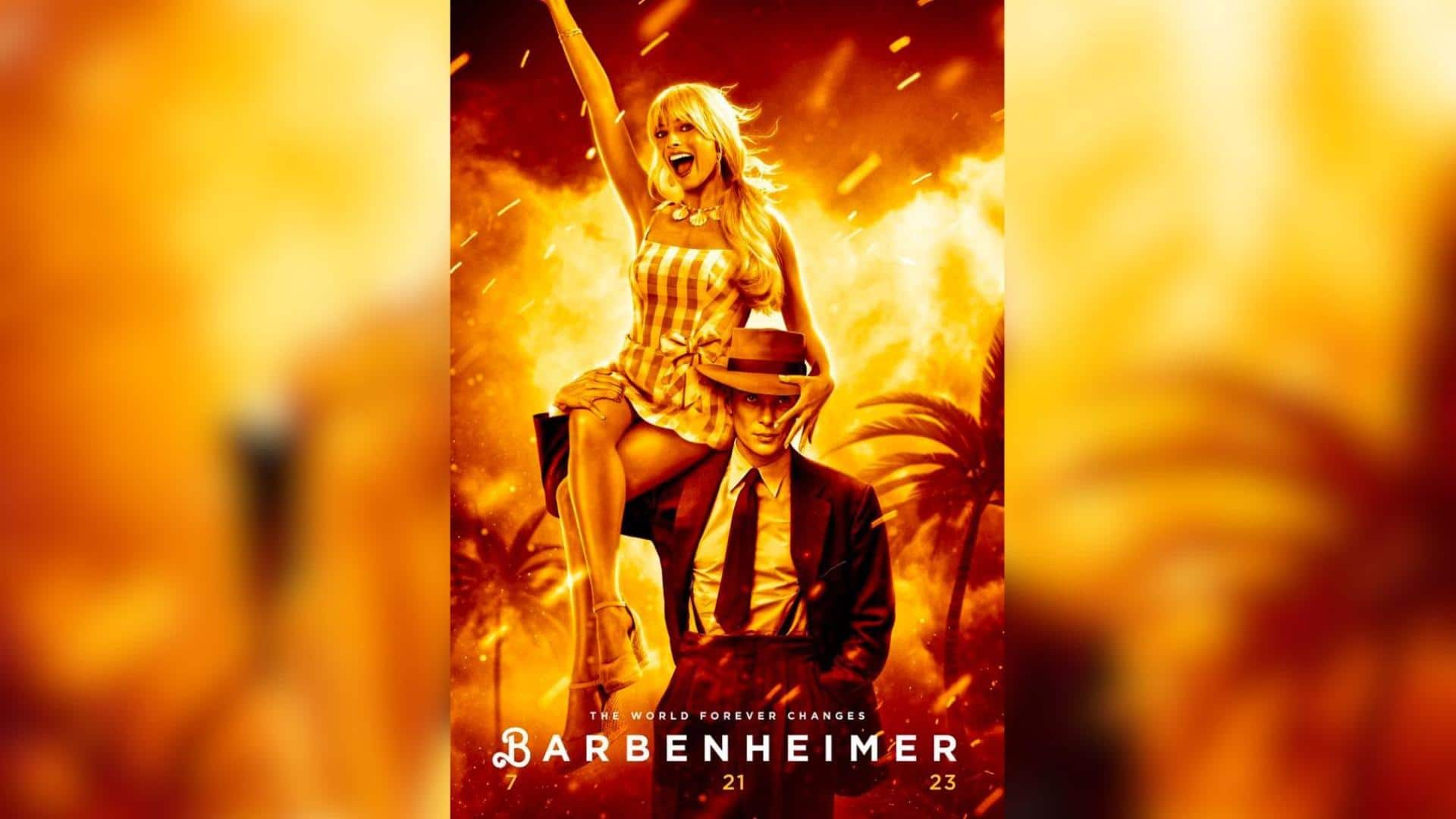
'Barbenheimer' collaboration faces criticism in Japan: Why Warner Bros. apologized
What's the story
This year's biggest box office clash between Warner Bros.'s Barbie and Christopher Nolan's Oppenheimer has captured global attention, fueling a frenzy of lighthearted memes under the hashtag Barbenheimer. While these memes generated immense buzz for both films, they also sparked a firestorm of criticism in Japan. This has led Warner Bros. in the US to issue a public apology. Let's delve into the details.
Controversy
How it all started?
Warner Bros. Japan on Monday criticized its US counterpart for participating in the Barbenheimer trend. Apparently, the US Barbie Twitter account interacted with a fan art post, which basically depicted Barbie (Margot Robbie) sitting on J Robert Oppenheimer (Cillian Murphy) in front of an atomic mushroom cloud. Responding to the now-controversial post, the Barbie account wrote, "It's going to be a summer to remember."
Criticism
'We take this situation very seriously': Warner Bros. Japan team
For days now, #NoBarbenheimer has been trending in Japan, fueled by the above-mentioned controversial art piece. The Warner Bros. Japan team issued an apology on the Barbie Japan Twitter account, expressing regret over the US headquarters' reaction to the fan post. "We take this situation very seriously...We are asking the US headquarters to take appropriate action...We apologize to those who were offended."
Twitter Post
Here's the official tweet by Warner Bros. Japan
— 映画『バービー』公式 (@BarbieMovie_jp) July 31, 2023
Reaction
How did the Warner Bros. US team react to this?
According to Variety, Warner Bros. issued a statement to the publication, stating, "Company regrets its recent insensitive social media engagement. The studio offers a sincere apology." Meanwhile, it is noteworthy that Nolan's film is facing significant backlash for not showing the extent of devastation caused by the bombs dropped on Hiroshima and Nagasaki—where allegedly over two lakh people lost their lives.
Details
'Oppenheimer' has not been released in Japan
Oppenheimer—the film based on the "father of the atomic bomb"— is yet to hit the screens in Japan. After the film's release in 50 other countries, many have discussed the contentious question of whether the atomic bombings saved lives and brought international peace, as the film depicts. However, the recent controversy yet again highlights the ongoing insensitivity surrounding the nuclear weapons discourse in Japan.
Information
About the Hiroshima and Nagasaki bombings
On August 6 and 9, 1945, the US dropped two atomic bombs on Hiroshima and Nagasaki in Japan. These bombings resulted in the deaths of an estimated two lakh people, primarily civilians. Notably, six days after the bombings in Nagasaki, Japan surrendered to the Allies.